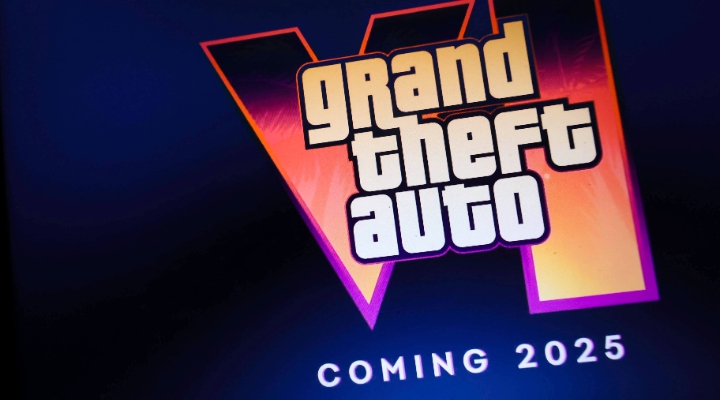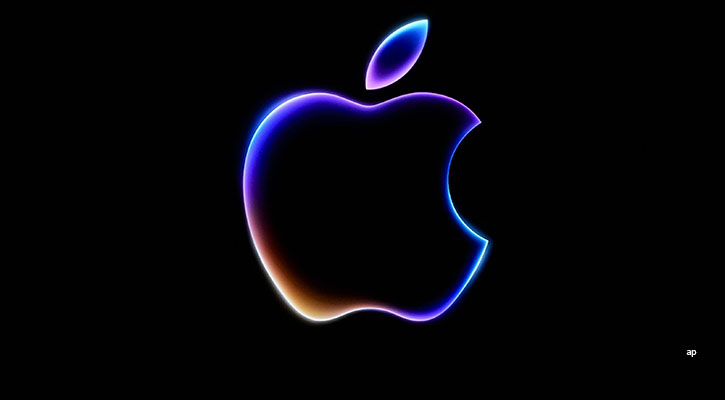
One of the most successful computer game franchises in history, Grand Theft Auto (GTA), is set to release a new chapter, and everyone who has ever enjoyed shooting down a police helicopter with a grenade launcher is talking about it.
GTA VI, as it is currently known, will be released in 2025, but a leaked trailer shows a new female lead character and the usual cocktail of debauchery and violence. Computer games don't often "cut through" into mainstream culture, but the likes of Minecraft, Super Mario, Call of Duty are huge commercial successes. With its combination of art-imitating-life graphics and proudly offensive content, GTA is no different.
Such franchises also reflect the increasing discretionary spending on this segment of the entertainment industry by younger people. Gaming is big business and investors are taking notice. Back in November 1997, when GTA originally launched as a birds-eye-viewer single-player adventure game, you would hardly believe commentators if they told you that, 26 years later, its sixth iteration would be a topic of discussion on Radio 4's Today programme.
Many hyped cultural events can be found to have an investing angle if you look hard enough – Squid Game boosted Netflix's profile for example – and gaming is no exception. The GTA series is developed by Rockstar Games, a New York-based video game publisher that can trace its roots back to Scotland in the 1990s. And Rockstar's parent company is Take-Two Interactive (TTWO), a $26 billion (£20.6 billion) venture that owns a number of franchises including Red Dead Redemption and BioShock.
What do Morningstar analysts say about Take-Two? Firstly, that, despite a 50% rise in its share price this year, lifted by the GTA VI buzz, shares are still around $10 below their fair value of $165. Still, shares trade on a steep price/earnings multiple of over 72.
Clearly the smart money would have bought into this venture at the start of the franchise but life is rarely that easy for investors. There was a moral pushback against some of the game's more notorious content, such as driveby shootings and, shall we say, adult interactions, but that was a sign that the "brand" was gaining cultural traction.
Take-Two Interactive's share price is up nearly 4,000% since then, but is it still attractive now?
I Won't Buy The Game, Should I Buy The Stock?
Take-Two's second quarter results in November were in line with forecasts, our analyst Michael Hodel says, but the company's management dialled back expectations for the 2025 financial year, the period which could see GTA VI hit the market.
Hodel addresses this in the latest note: "we suspect the game is still slated to launch soon, but maybe a bit later than Take-Two previously expected. Regardless of exactly when GTA 6 is released, we expect the title will generate significant value for Take-Two shareholders."
More than 345 million units of GTA have been sold over its lifetime but gaming has changed since its inception. Once a one-off purchase of a disk, franchise games are often bought and played online with interactive elements and "add ons". Morningstar's Hodel notes Take-Two fully embrace this model and it's part of the firm's narrow economic moat.
"Like its peers, the firm is focused on engaging users beyond the initial game sale by expanding the use of multiplayer options and releasing downloadable content, or DLC. Online game modes lead users to develop social networks, thus encouraging player loyalty."
He adds Take-Two introduced GTA Online in 2013 with the last iteration of the title, "expanding its life cycle and monetisation".
GTA: Many Ways to Play
I last wrote about computer games as a consumer trend in the pandemic era. Of course gaming's lucrative run began long before then, as my 2019 article How to Tap Into the Computer Game Boom reveals.
Fortunately for investors, there are many ways into this huge consumer story, via consoles made by Sony, Nintendo and Microsoft.
Or you could watch the M&A activity: China’s Tencent bought a 40% stake in Epic Games in 2012, the US private company that developed Fortnite, which has gripped gamers worldwide (and troubled parents and teachers in the process).
An October 2018 funding round valued Epic at $14 billion but PitchBook now sees that above $30 billion after an April 2022 round. Chinese tech firms have had a rough ride recently, but they are heavily invested in gaming, a hobby that attracts so much screen time there that the government intervened a few years ago.
And there are established "pure-play" US firms like software developers Electronic Arts (EA) and Activision Blizzard (soon to be part of Microsoft), which own franchises like EA Sports (formerly Fifa) and Call of Duty. France's Ubisoft, home of Assassin's Creed, flies the flag for EU gaming too.
Even non-gaming companies are wanting a piece of the action; Netflix is making previous GTA games available this month and Apple has launched an Arcade subscription, so expect more of this sort of collaboration from cash-rich tech firms in the coming years. It’s not all a one-way bet though; it was "Game Over" (or "WASTED", as GTA fans have come to expect) for Google’s Stadia streaming service earlier this year after a near-four year run.
Haven't hype-following investors now moved on to artificial intelligence (AI)? Yes, but there are crossovers everywhere: 2023's market outlier Nvidia makes computer chips, and AI has driven many of the innovations within the gaming industry. You could say games are also a play on AI too.
If this latest iteration of GTA isn't entirely AI-driven don't be surprised; you may well find AI is, at the very least, the butt of just a few jokes. After all, GTA isn't just a violent video game. It's an interactive satire on modern life. We can only wonder what Morningstar analysts would say about GTA V's Lifeinvader app!










.jpg)






















